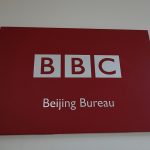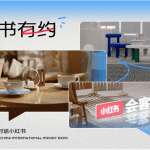‘Pure, white cotton shouldn’t be tainted!’ Chinese voice support for Xinjiang
“纯白色的棉花不应该被污染!”中国声音支持新疆

Chinese people are angry. For two days in a row, some multinational companies, including H&M and Nike, came under the spotlight due to their controversial statements on the Xinjiang affairs. They made the statements to follow the industry requirements set by nongovernmental organization Better Cotton Initiative (BCI) to stop using cotton from Xinjiang.
When boycott calls from netizens intensified, Chinese industry representatives said it’s time to reduce reliance on West-led industry bodies and standards, increase Chinese companies’ stake in the global supply chain, and legally push back against unreasonable smears.
“I support Xinjiang cotton” has become a popular online campaign on Chinese social media platforms on Thursday – a display of how Chinese companies, media and ordinary people responded to the constant smear campaigns some Western countries have launched on this major commodity in Northwest China’s Xinjiang Uygur Autonomous Region while these countries urged multinational companies to reject Xinjiang cotton for the so-called forced labor. At least 30 Chinese companies such Anta, Meters Bonwe and Semir spoke out on their Weibo accounts against the campaign, and Chinese sportswear producer Li Ning – a major competitor to Nike – stressed that the region is an important raw material producing area in the company’s supply chain.
Such palpable enthusiasm and emotional expression in defending China’s Xinjiang as well as the local products was also ignited when several Western countries, following the lead of the US manipulation on the Xinjiang matter, imposed sanctions on individuals and entities under the pretext of so-called labor and human rights issues in the region. It also drew a sharp contrast to certain foreign brands like H&M and Nike that banned cotton from Xinjiang, expressing concerns over this labor allegation.
Many Chinese netizens were outraged by such behavior which they called “earning money from China but defaming it on major issues,” which severely hurt the feelings of the Chinese people.
Ongoing boycott
Global Times reporters visited H&M stores in core commercial areas in both Beijing and Shanghai amid growing online calls for a boycott. Some shoppers said they won’t patronize the brand unless it rectifies its stance.
A white-collar worker surnamed Wang, whose workplace is close to an H&M store in downtown Shanghai, told the Global Times, when asked about his opinion on the latest online backlash, that “as a big company, it [H&M] should learn the lesson that it should have respected Chinese people’s feelings when it is doing business in China.”
Anger erupted after the company said in a statement that it was prohibiting any type of “forced labor” in its supply chain in Xinjiang – a rumor maliciously fabricated and fanned by Western anti-China forces, citing the Better Cotton Initiative (BCI), a major reason behind its cutoff of raw material procurement from the region.
The BCI had more than 1,840 members around the world by the end of 2019, spanning the entire global cotton supply chain, from farmer organizations to retailers and brands, including multinationals such as H&M, adidas, and Nike.
More than 30 Chinese celebrities announced they would end their endorsement contracts with the brands listed on the BCI as of Thursday. However, neither the Chinese Basketball Association (CBA) nor General Administration of Sport of China officially revoked sponsorships of those brands, though CBA player Zhou Qi said on Weibo that he had taken off his Nike-sponsored jersey.
Relevant topics, including celebrities ending their ties with BCI-member brands, adidas’ statement on the Xinjiang cotton as well as the Chinese Foreign Ministry defending the cotton, topped the rankings of daily hot hits on Chinese Twitter-like Weibo, gaining millions of views, while major Chinese media outlets released posters and banners in support of Xinjiang cotton.
The public outrage toward H&M, Nike and Adidas also created pressure for other multinational companies that had already shown their commitment to the BCI promising not to use any cotton produced in Xinjiang for the so-called human rights violation concerns, including Uniqlo, which is popular among young Chinese. Some urgently clarified their positions on the matter. Japanese garment retailer Muji told the Global Times on Thursday that “it purchases high-quality cotton from all over the world including China, India and Turkey.” A large number of Xinjiang cotton-based products are still on sale on Muji’s website.
But others like Uniqlo, which has distanced itself from the matter, with Fast Retailing Company – the operator of the brand – previously saying “its brand Uniqlo did not produce any products in Xinjiang, nor did it subcontract the products to local fabric factories or textile factories.”
Why BCI matters
The BCI – an influential nongovernmental organization (NGO) and even a rule-maker in the global cotton industry – has been found to be “the black hands” behind this “anti-Xinjiang cotton campaign” among those multinational firms, as when the NGO stopped issuing licenses and certificates for cotton from Xinjiang, Chinese suppliers of foreign brands that have to follow the BCI standards need to follow suit by suspending buying cotton from Xinjiang.
“Unfortunately, many suppliers and exporters in China still rely on these West-defined industry standards if they want to export products to Western markets, especially environmental protection and labor rights standards widely accepted by the markets,” Wang Jinhua, vice chairman of China Cotton Industry Alliance, told the Global Times on Thursday.
In 2015, the NGO began pressuring some multinational companies to reduce or stop the use of Xinjiang cotton amid geopolitical considerations, and it also gave a timetable for companies to end their purchases of Xinjiang cotton. The companies, their suppliers and factories had to follow before entering foreign markets, he said.
According to the BCI’s official website, the organization has 2,100 members worldwide, of which nearly 500 are from China, including five retailers and brands, 485 suppliers and manufacturers.
“The value of BCI’s certificate depends on who your target market is. If your customers are all BCI retailers and brand members, then its certificate and licenses are very important because without a BCI certificate, you cannot sell your products to these companies,” Zhang Biao, chief manager of a company named Zhongwang in Yuli county in Bayingolin Mongolian Autonomous Prefecture in Xinjiang, told the Global Times in an earlier interview.
Faced with growing public anger toward the anti-Xinjiang cotton campaign over groundless accusations, some BCI-member Chinese companies chose to quit the NGO. Chinese sportswear maker Anta Sports said on Wednesday that it has started the process to quit the group, as the BCI suspending licensing for Xinjiang cotton echoed the West-led smears on the labor force in the region, and standing with the NGO would trigger another public outcry.
Protecting Chinese interests
While public outrage on Chinese social media targeted certain multinational firms like H&M, Nike and adidas, industry representatives said China should find out which powers behind the BCI are using a political and ideological agenda in manipulating business subjects, as this NGO is also sponsored by some US and European retailers and associations, including cotton associations of the US and Australia.
“BCI has set up a very bad example by using false information and political agenda to interrupt the global trade order,” an expert on international affairs, who preferred not to be named, told the Global Times on Thursday.
However, can Chinese companies really live without this NGO-led global standard? Some industry representatives said there are several ways to defend their interests while fighting such manipulation on the basis of lies and rumors about Xinjiang.
“Besides boycotting H&M and Nike, Chinese authorities need to take action in response to the rejection of Xinjiang cotton,” the expert said.
Tu Xinquan, dean of the China Institute for WTO Studies at the University of International Business and Economics in Beijing, told the Global Times on Thursday that as the actions of BCI – an NGO – are not official, this can’t be resolved under the mechanism of the WTO. “The practical solution is for companies to sue the BCI China office or its headquarters,” Tu said.
While the Chinese government has been accelerating legislation, or the entity list, in imposing countermeasures against foreign entities and individuals that harm Chinese interests, some industry representatives like Wang consider the entity list as one possible measure to protect Chinese interests.
“But more importantly, China’s cotton industry needs to continue enhancing its competitiveness and quality, making it irreplaceable for foreign brands, which will use business interests as a major leverage in the face of political agenda,” Wang said.
For some Chinese suppliers who depend heavily on orders from multinational firms, it’s also a good time to shift to the domestic market, in the juncture when the central government also emphasizes the dual-circulation, making more efforts to turn those export businesses to domestic ones, according to the industry representative.
The Chinese Foreign Ministry, the Ministry of Commerce and the China Consumers Association all voiced support for cotton in Xinjiang, criticizing some multinational enterprises for hurting the feelings of Chinese consumers and infringing on their legitimate rights and interests.
“Chinese people have the right to express their feelings. They do not accept the fact that foreign companies earn money from them on the one hand and smear China on the other,” Foreign Ministry spokesperson Hua Chunying said.
Pure white cotton of Xinjiang should not be smeared and tainted, Gao Feng, spokesperson from MOFCOM, said at a Thursday press conference, noting that Chinese consumers had reacted to certain companies’ business decisions based on false information, and the foreign companies are welcome to visit the region to take a look at China’s support in doing business and in investing there.








